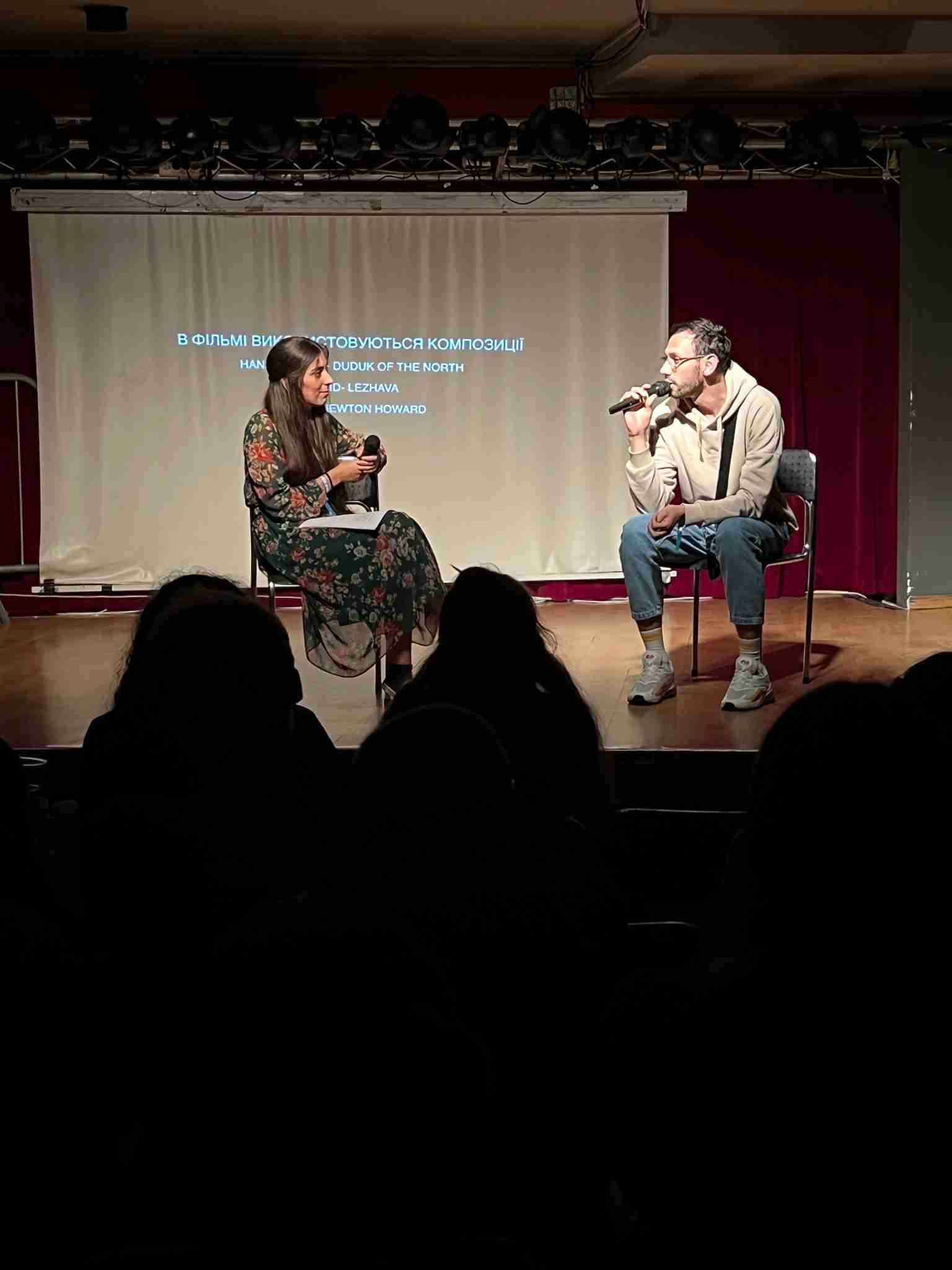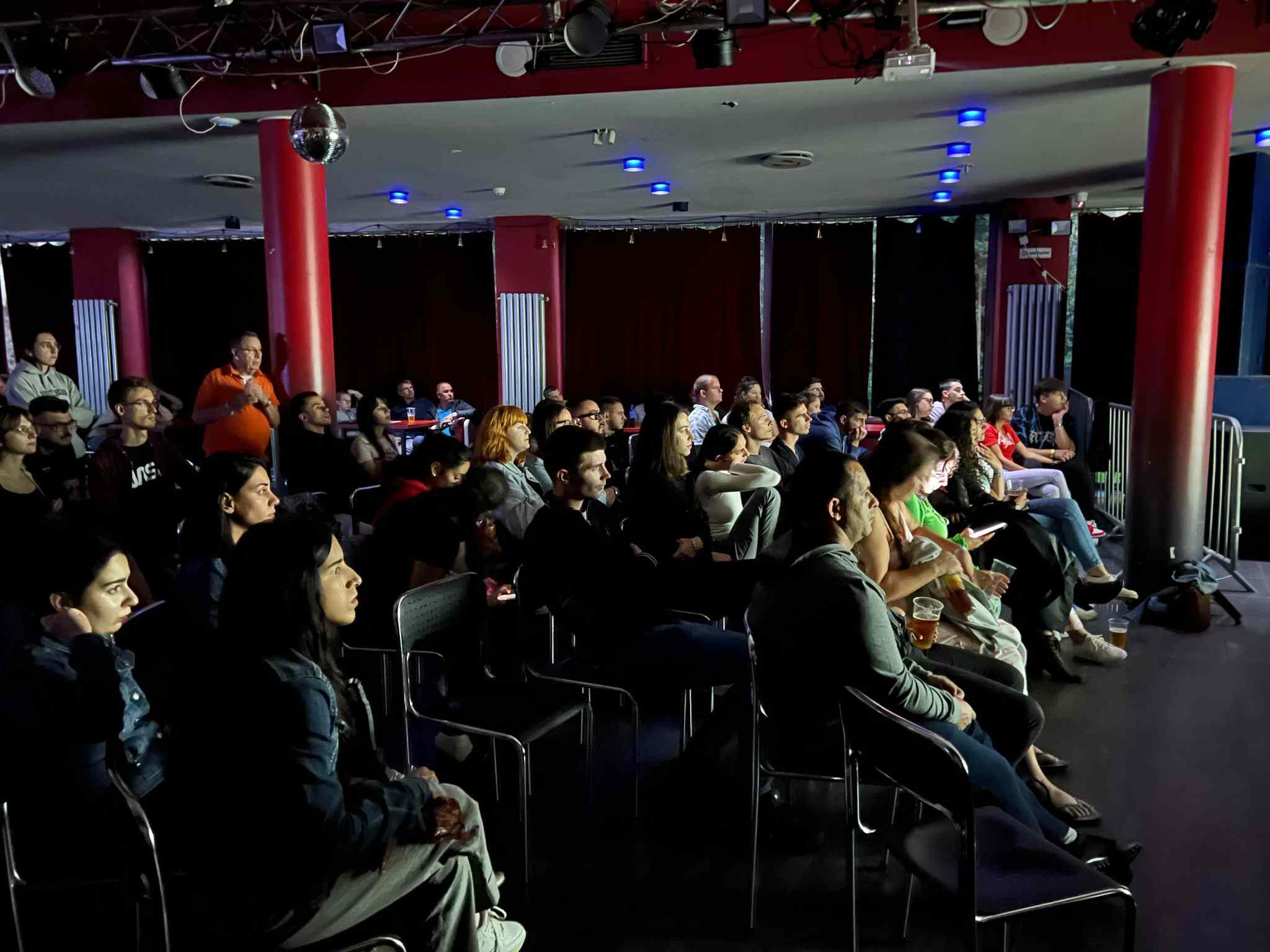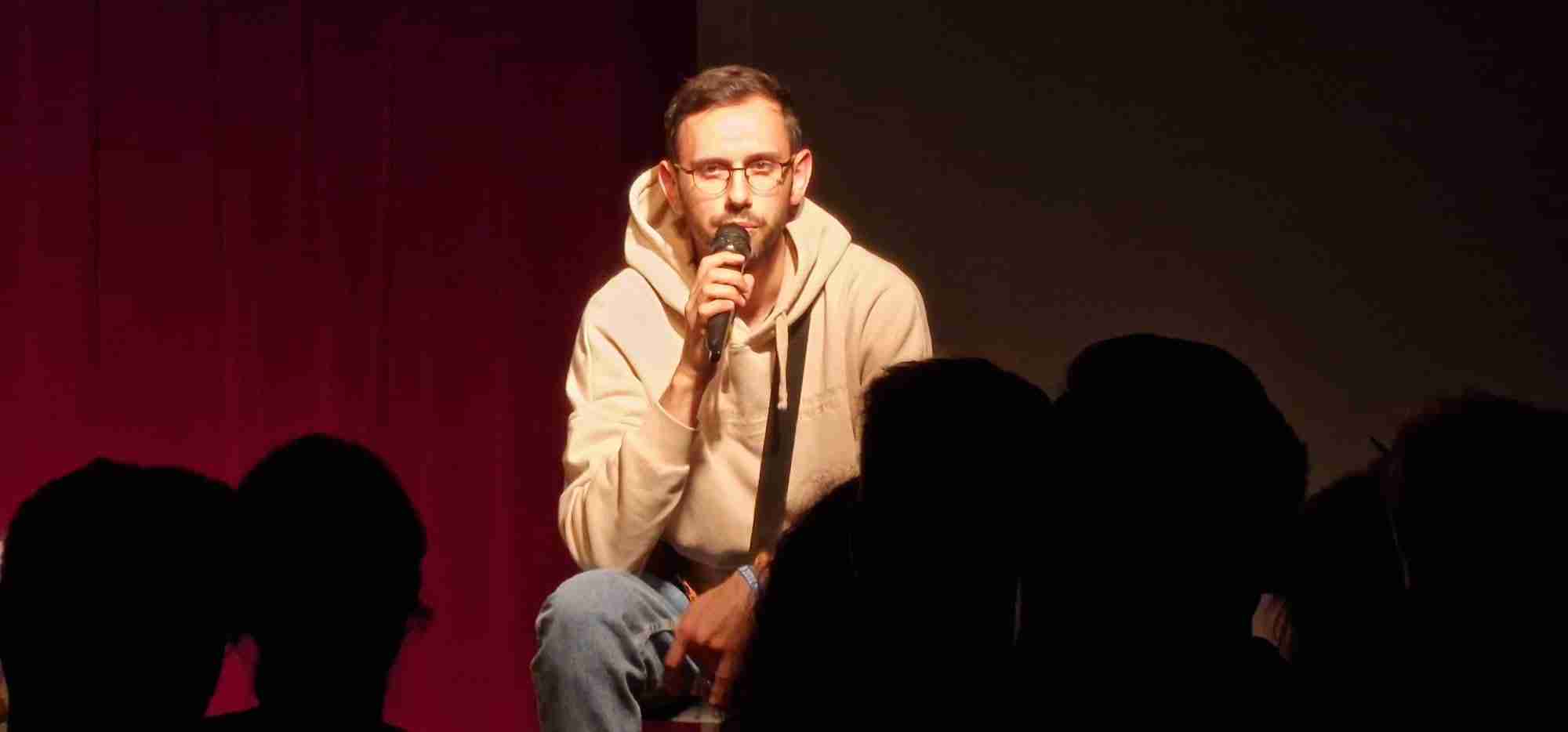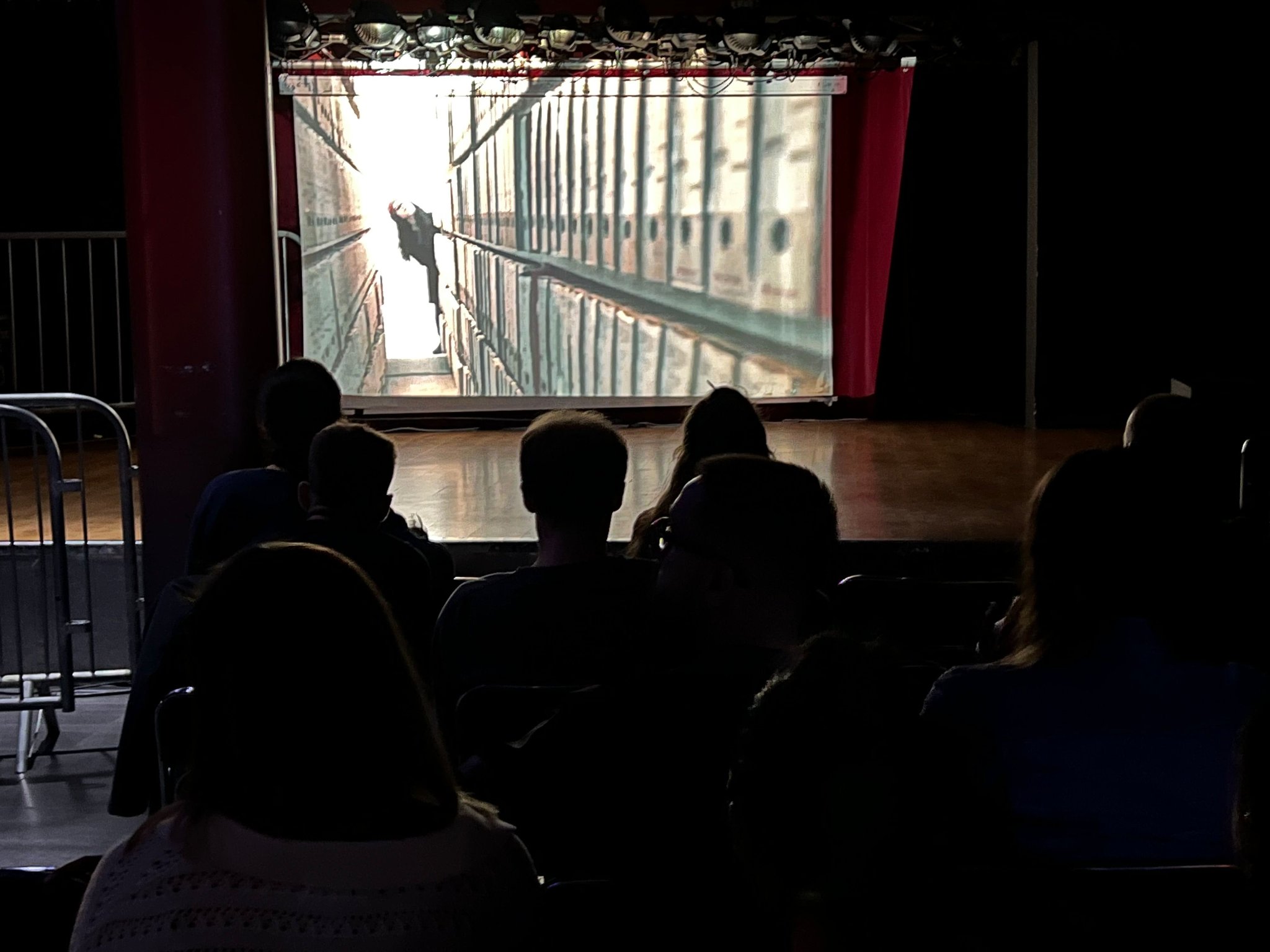A volunteer and an actor. A displaced person twice.
He had to live under occupation back in 2014, and those memories made him move abroad. Now he is working with “Viche” (meaning a city assembly) in Berlin and fighting with the Russian aggression within the informational war front.
Below follows his direct speech.
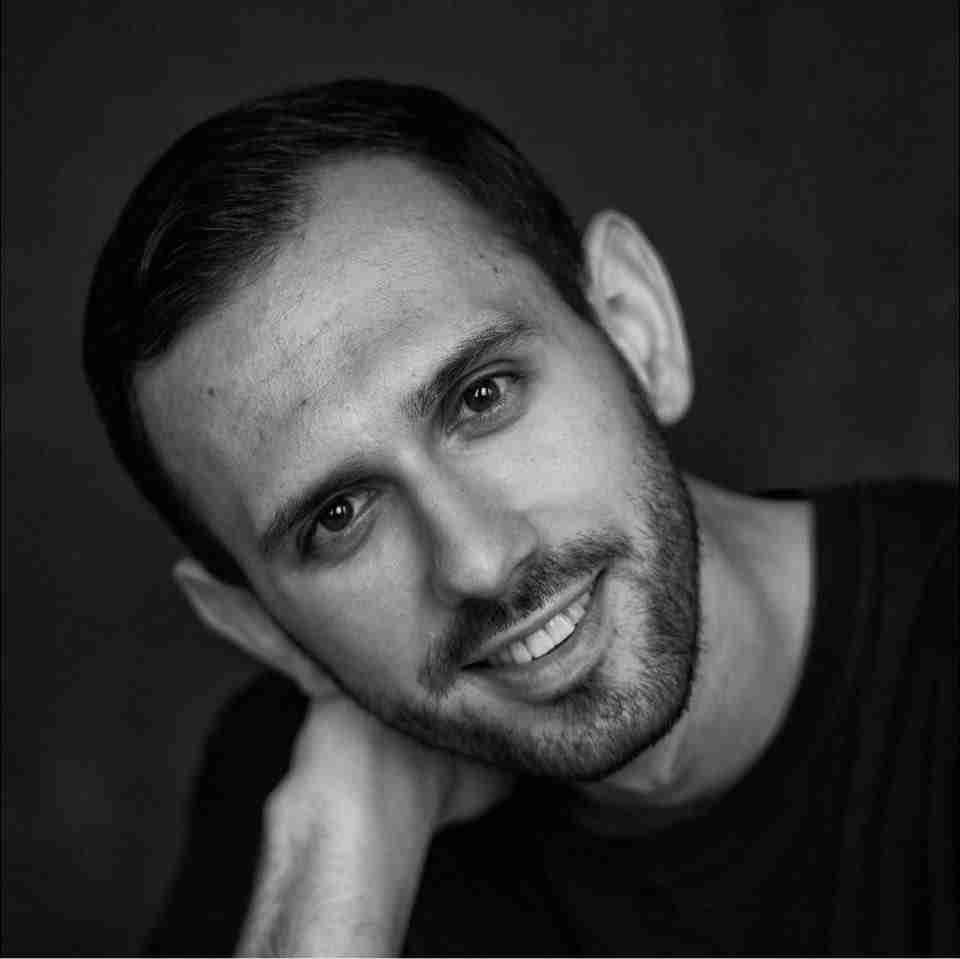
“On the evening of February 23rd my friends and I parted, being absolutely sure that nothing was going to happen”.
We had been psyched up for that. I come from Donetsk region, so back in 2014 we had to flee from war. But I did not have the feeling of the war to break out soon.
And in some three hours already we woke up from explosions.
Back on the evening of February my friends and I had visited the opening night of a Ukrainian film. After the event we went to a café and what we discussed was not the film but a possible invasion. And about early 2 AM we parted with a complete feeling that nothing was going to happen.
And in some 3 hours we woke up due to explosions.
I had a real brain freeze then. I just sat and could not realize what was to be done next. Then I had some thoughts of fuelling the car, while traffic jams were already appearing at fuel stations. Later on I started to pack my things up.
I had already been under occupation in the city of Donetsk before so I still remembered all that. So I made up my mind for I had no wish to live through the same things again.
We set off for the city of Chernivtsi. Having no plan, we just went following everybody else. Huge traffic jams, fear, panic, the unknown. It took us three days just to leave.
I had no stereotypes or premonitions about the West of Ukraine. I had used to travel here a lot before, including Transcarpathia, both for performing and for a rest.
“I heard for my own ears people saying toward me that I’m a sep (separatist)”
Occupation of Donetsk had started back on May 26, 2014. I remember that day very clearly indeed. And the first explosions in the city. I was then a student at a college and had no understanding of the situation, having to complete my education. So I stayed then. There were Russian troops staying, with checkpoints, Kadyroff’s soldiers. I passed them by every day, watching everything for my own eyes. The atmosphere was depressing. So, in a few months, when I got an opportunity to leave, I did. That was how I happened to stay in Kyiv and entered to the University after Karpenko-Kariy to the theatre faculty.
I had some acquaintances who just like myself, faced discrimination and stereotypes back in 2014. But for me it was not due to my being of the Roma nationality but due to the fact that I came from the East of Ukraine. Like, “oh so you’re from Donetsk, then you must be a Sep”. And it was not only once that I heard people saying toward me that I am a Sep.
Of course, it hurt to hear that all people from the East are separatists, knowing it was absolutely wrong.
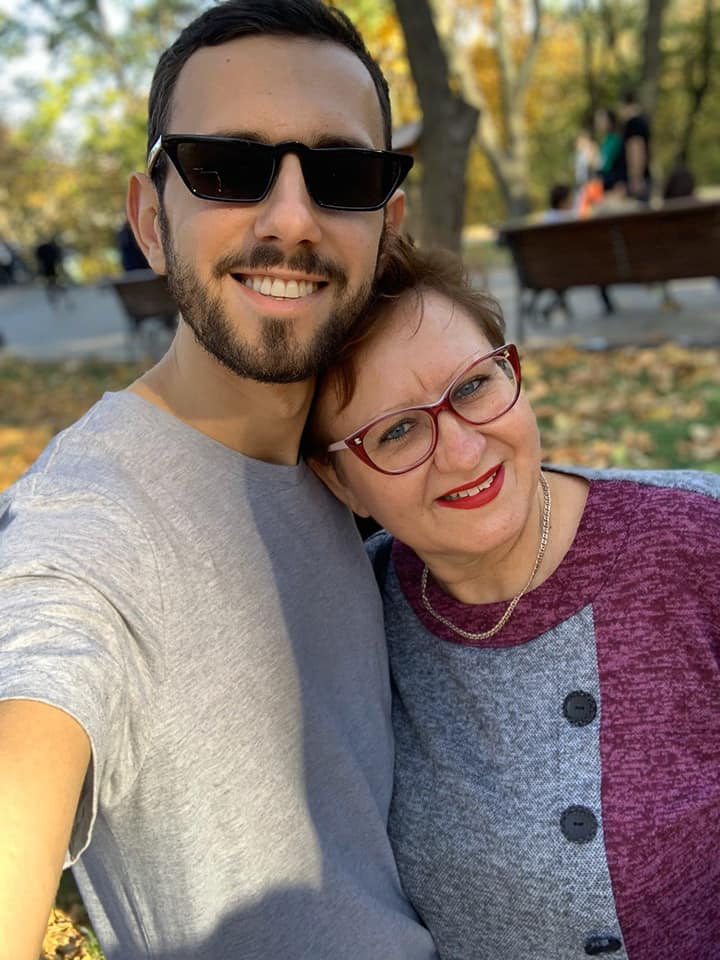
Petro with his mom Iryna
Now I have taken my mom out from the settlement of Kurakhovo (Donetsk region). Though, I still have my Granny and neighbors, just like relatives to me, staying over there. Of course, we are indeed like relatives to one another, since we had lived all together in a two-storey house in the suburbs, we all knew everybody else, true friends indeed.
“I have got an opportunity to leave the country early in June, as a student of the Central European University, having all the required official permits from the military recruitment center and the Frontier Office.”
I had made the decision even before the invasion. I had then been waiting for my visa but obtained a waiver.
I studied in the Central European University in Budapest. And in spring 2022 I had to do my practical training and work with kids and teenagers.
As the full-scale invasion broke out, I had no time for that. It was a month full of stress and thoughts of surviving only.
A month later, I calmed down and restarted the legal process with my visa. Definitely, it was impossible to get a Reference note in Kyiv, so I had to look for other ways.
I got an opportunity to leave the country early in June, as a student of the Central European University, having all the required official permits from the military recruitment center and the Frontier Office.
Now I have graduated from the university, working in Berlin. My scope of activity is public activism, interfering with media.
I obtained a scholarship and due to that I have possibilities to co-work with the Ukrainian public society of “Viche”, resisting Russian deception lies and announcing truth of the war in Ukraine for Germans. My assignment here is to develop the organization’s YouTube project.
“It did not matter at all how much money you have or whether you are well-known. You only needed to have some primary human support”
Already by early December I visited the Romani Youth Forum in Berlin, where we discussed the situation with Roma in Ukraine and beyond.
There are various cases, both positive and negative. Yet, Roma remain to be one of the most discriminated social groups within the population.
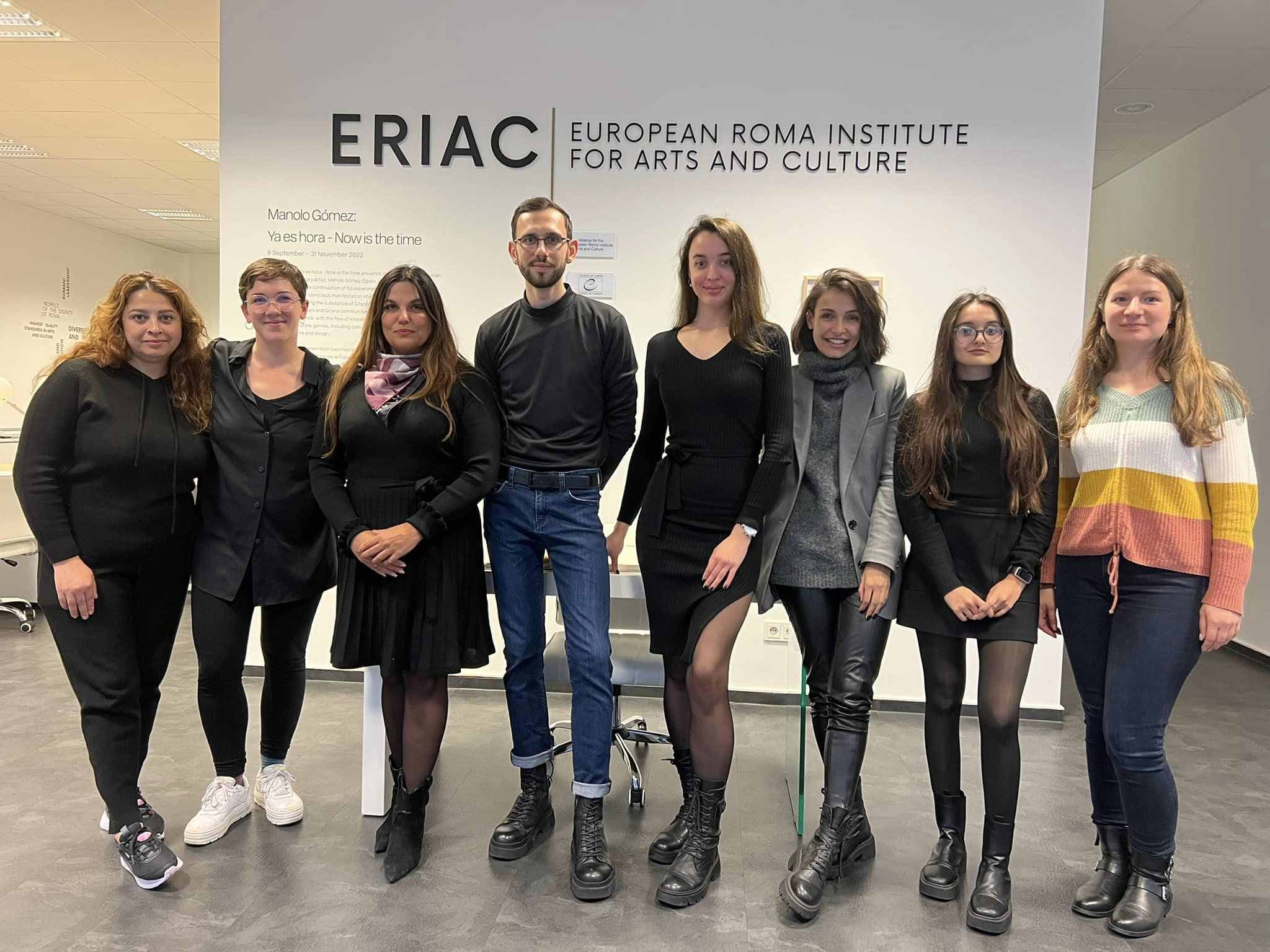
My Roma female frriends, public activists too, did a research on discrimination of Roma in Hungary. They found numerous violations, like segregation of settlements. First of all, it is related to the political crisis in the country, as well as to Orban’s politics. They are now developing a strategy for advocacy in this issue.
In Slovakia and Czech there are also issued with Roma settlements.
Most of Roma from Poland, for example, moved to Germany. Reasons for that are, firstly, the country’s status and a different level of support. From my experience of cooperation with stately bodies here, and from my conversations with friends, I think it is one of the countries that supports displaced persons most of all.
On August 2, this year I went to Dikh He Na Bister, an event summoning young people from various countries since 2010, to commemorate the Holocaust Roma Remembrance Day. I then presented my film from 2016, devoted to the topic, “STORIES FROM OUR PAST- A SELECTION OF FILMS ABOUT ROMANI AND SINTI SUFFERING DURING WW2”.
And this year, within the panel conference much was said of the Russian-Ukrainian war, and Romani organizations signed a petition, condemning the military aggression by Russia.
The war has really made us all equal and, at the same time, it has united us all. My social status was not significant. People tried to help one another without relating to that, it did not matter at all how much money you have or whether you are well-known. You only needed to have some primary human support”
***
First thing for me to do after the Victory? I may burst into tears. Then I will go out in the street, to welcome all and everybody. And yes – I want to celebrate this day at home.
Матеріал підготовлено за підтримки Міжнародного фонду “Відродження” у межах проєкту “Протидія упередженням та стереотипам щодо ромів під час війни, консолідація навколо спільного прагнення до перемоги”. Матеріал відображає позицію авторів і не обов’язково збігається з позицією Міжнародного фонду “Відродження”.
Article by Halyna Hychka, the Varosh
Photos by: Petro Rusanenko
This article has been compiled with the support from the International “Renaissance” Fund, within the scope of the project “Counteraction to prejudices and stereotypes towards Roma during war, consolidation around the common strive for victory”. The article reflects the authors’ opinions, which may not necessarily coincide with that by the International “Renaissance” Fund





